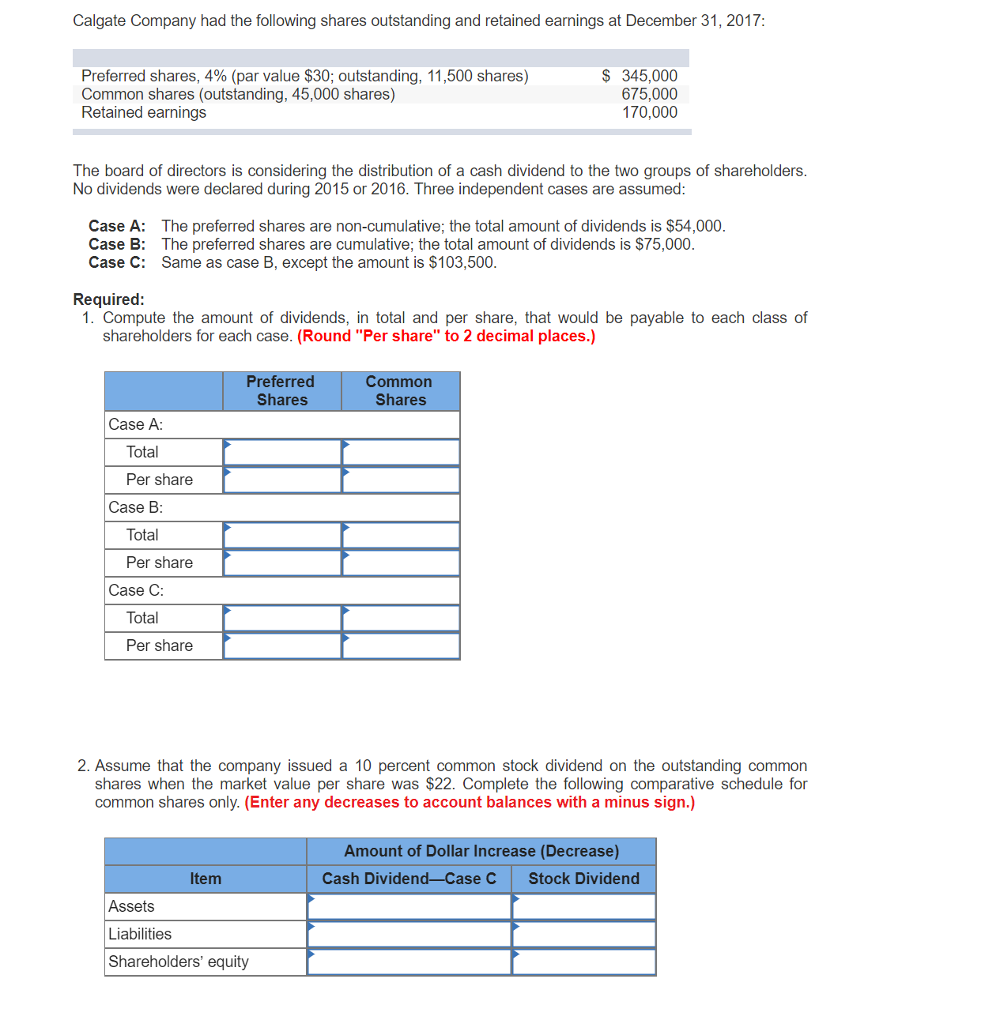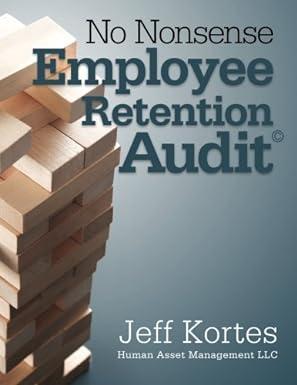Answered step by step
Verified Expert Solution
Question
1 Approved Answer
Calgate Company had the following shares outstanding and retained earnings at December 31, 2017: Preferred shares, 4% (par value $30; outstanding, 11,500 shares) $ 345,000
| Calgate Company had the following shares outstanding and retained earnings at December 31, 2017: |
| Preferred shares, 4% (par value $30; outstanding, 11,500 shares) | $ | 345,000 | |
| Common shares (outstanding, 45,000 shares) | 675,000 | ||
| Retained earnings | 170,000 | ||
| The board of directors is considering the distribution of a cash dividend to the two groups of shareholders. No dividends were declared during 2015 or 2016. Three independent cases are assumed: |
| Case A: | The preferred shares are non-cumulative; the total amount of dividends is $54,000. |
| Case B: | The preferred shares are cumulative; the total amount of dividends is $75,000. |
| Case C: | Same as case B, except the amount is $103,500. |
| Required: |
| 1. | Compute the amount of dividends, in total and per share, that would be payable to each class of shareholders for each case. (Round "Per share" to 2 decimal places.) |
 |
Step by Step Solution
There are 3 Steps involved in it
Step: 1

Get Instant Access to Expert-Tailored Solutions
See step-by-step solutions with expert insights and AI powered tools for academic success
Step: 2

Step: 3

Ace Your Homework with AI
Get the answers you need in no time with our AI-driven, step-by-step assistance
Get Started


